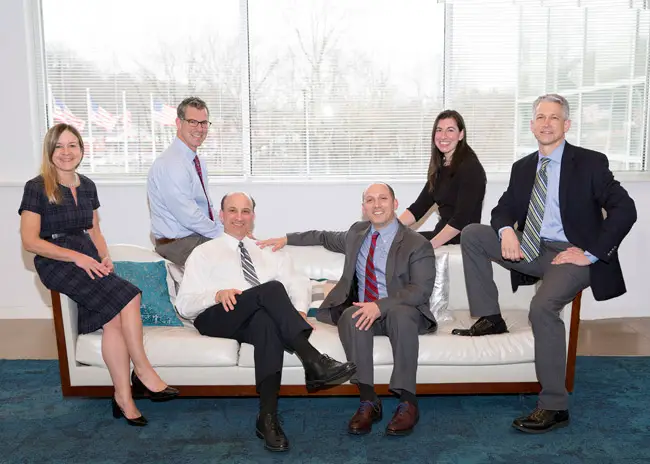Couples looking for help with fertility have a new option at RMA of Connecticut.
Reproductive Medicine Associates of Connecticut (RMA) is now offering Invocell, a patented medical device used in the treatment of infertility that enables egg fertilization and early embryo development to take place in a woman”™s body instead of an embryology lab.

Illana Ressler and Shaun Williams.
The eggs are retrieved from a woman”™s ovaries and placed in the Invocell system with sperm. The device is then placed inside the woman”™s body to allow fertilization and incubation to occur.
“It”™s very cool,” attested Dr. Spencer Richlin, surgical director and partner at RMA, which has offices in Danbury, Norwalk, Stamford and Trumbull, as well as in Harrison, New York.
“Invocell is unique in many ways,” he said. “For patients trying to decide between intrauterine insemination (IUI) and in vitro fertilization (IVF), Invocell offers another great choice.
“The success rates for Invocell are close to regular IVF and higher than IUI, making it a truly viable treatment method,” Richlin said.
The average U.S. success rate for IVF is 37.8%, while for IUI it is about 20%.
“When a patient chooses to do a traditional IVF cycle, their eggs are retrieved and combined with sperm in our embryology lab, then carefully monitored for growth over the next five days,” Richlin continued. “With Invocell, the egg retrieval process remains the same but the actual conception and initial five-day incubation period occur inside the Invocell device, which is incubated and carried by the female patient themselves.”
After five days, the device is removed, evaluated and embryos are either frozen or placed back into the woman”™s uterus, as in a traditional embryo transfer, he explained.
The doctor said that after consultations with other RMA physicians and its clinical team the decision was made to add the treatment to its menu of options.
“Invocell is also more accessible and offers a higher level of personal involvement in the IVF process, which is something we knew would appeal to many of our patients,” he said.
Invocell should also appeal to LGBTQ+ female couples who both want to participate in the conception and carrying of their future child, Richlin added.
As for price, he said, “Invocell is certainly more cost-conscious than IVF, especially for patients without insurance. RMA of Connecticut”™s Invocell plan is $7,500, and includes services such as egg retrieval, three free months of cryopreservation, embryo transfer and more.
“Since Invocell is a newer technology, it is not yet covered by insurance, but we are hopeful it will become covered in the future,” he said. “Choosing Invocell could save someone $10,000 or more, depending on their insurance coverage.”
As RMA officially launched Invocell on July 13, Richlin declined to provide specifics about patients”™ experiences with the device.
He noted, however, the process is the first of its kind.
“It opens up the world of fertility treatment to even more patients, and offers a fresh way for women using fertility treatment methods to be involved in the conception and incubation process,” he said. “I knew right away that we had to bring this technology to RMA of Connecticut.”




















